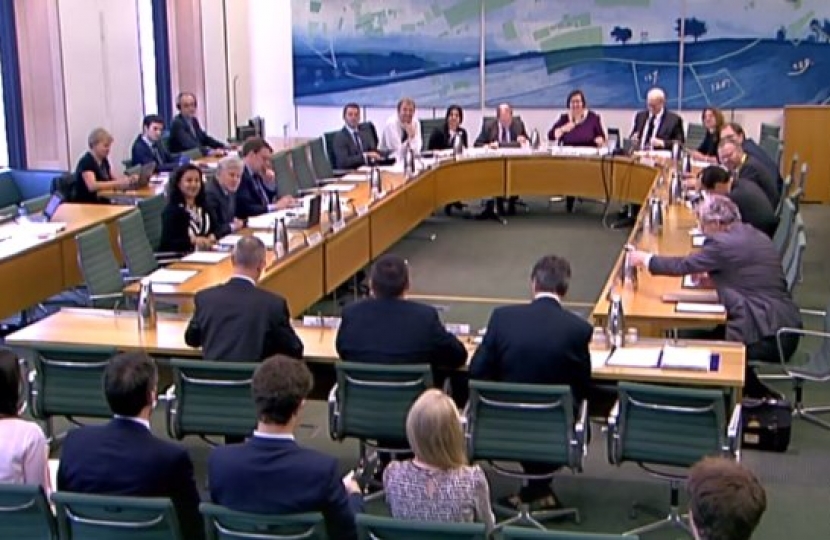
October 25th 2017
Scope of Inquiry
HM Revenue & Customs (HMRC) was due to complete a five-year programme for a new Customs Declaration Service (CDS) by early 2017. However, delays mean that CDS will not be fully operational until January 2019.
In July the National Audit Office (NAO) published a report into CDS that found there are still significant amounts of work required to meet this new target. If there are further delays, CDS may not be running fully by the time the UK is due to leave the European Union in March 2019.
Although HMRC due diligence has found that the CDS system will remain suitable following the UK’s withdrawal from the EU, there is considerable uncertainty as to what customs environment the UK will operate in.
On 9 October the Government published a White Paper describing future customs legislation for post-Brexit. It set out potential scenarios for a new customs relationship with the EU—but it is not yet clear whether HMRC’s existing CDS programme would work for all of them without modification. It is also not clear whether the proposed finish date of January 2019 would give time to make those modifications.
The Public Accounts Committee will ask officials from HMRC about CDS’ progress to date, outstanding risks to completion, and resilience in a number of potential scenarios for leaving the European Union.
Questions from Gillian Keegan MP
Q71 Gillian Keegan: I, too, bear the scars of many IT delivery projects, and I have actually never had one go right. Moving from legacy systems to these systems is incredibly difficult. You have a 17-month programme with two months’ contingency; the world has changed since you set out; and this has now become a critical system with a deadline—all of which is new. It seems to me that the only real contingency that you have is falling back to CHIEF, because this is too risky as it is at the moment. I would like to dig a little more to understand what the risks are with upgrading CHIEF. How long will it take? We know it will cost £17.3 million, but more importantly, what will it not be able to do when that system is the one operating in April 2019?
Kevin Franklin: I agree that the main contingency is CHIEF. We are planning to have an environment set up early in the new year so that we can look at the scalability of CHIEF. We will have a very clear view then of how long it will take, because we have already started having discussions with the current supplier of CHIEF, Fujitsu, around scalability and the ability for that to be done. Upgrading CHIEF will deal with volumes, but it has not been built to accommodate the functionality that is associated with the Union Customs Code, so it will not be able to do that.
Gillian Keegan: I have to declare an interest, because I was not aware it was a Fujitsu system. My husband works for Fujitsu and is probably involved with this project.
Chair: So someone on the Committee is happy that you are contracting with Fujitsu. Q72 Gillian Keegan: I know you are going to start in January, so basically you think it is a year-long programme to upgrade CHIEF. Are you saying there is no risk, or that it’s low risk?
Kevin Franklin: No, it is not a year-long programme. We haven’t set down the timeframe for upgrading CHIEF, but from talking to Fujitsu it is matter of weeks to be able to make the upgrade. We need to have the environment to do some more work on understanding what that would look like, and that environment will be ready in January 2018.
Q73 Gillian Keegan: And what will it not do?
Kevin Franklin: CHIEF will not accommodate the functionality that is associated with the Union Customs Code. There are two drivers for CDS: one is to replace CHIEF, because it is an ageing system and we want to move on to new technology; the other is to implement the Union Customs Code.
Chair: We are moving from ceramics now to whisky.
Q126 Gillian Keegan: How can that make sense? How can you not have programmers and it not have an impact on the delivery of the programme?
Kevin Franklin: We have 200 people working on this.
Gillian Keegan: You need 249.
Kevin Franklin: But it is not as though we are devoid of those skills already. We ensure that we are mapping those skills to the priority work, to ensure that we are working towards the critical milestones.
Q127 Gillian Keegan: It is quite a big percentage of people missing though, isn’t it?
Kevin Franklin: Twelve out of 200? Gillian Keegan: No, you had 48. Kevin Franklin: We are now down to 12.
Q128 Gillian Keegan: Yes, but you said that they had no impact on the delivery at all, that when they were not there doing a job, there was no impact on the delivery of this programme. It does not make sense.
Kevin Franklin: Because we prioritised the work according to the skills of the people that we had. We already talked about some of the prioritisation challenges we have had around working on some of the programmes and we were able to sequence that from a technology perspective.

